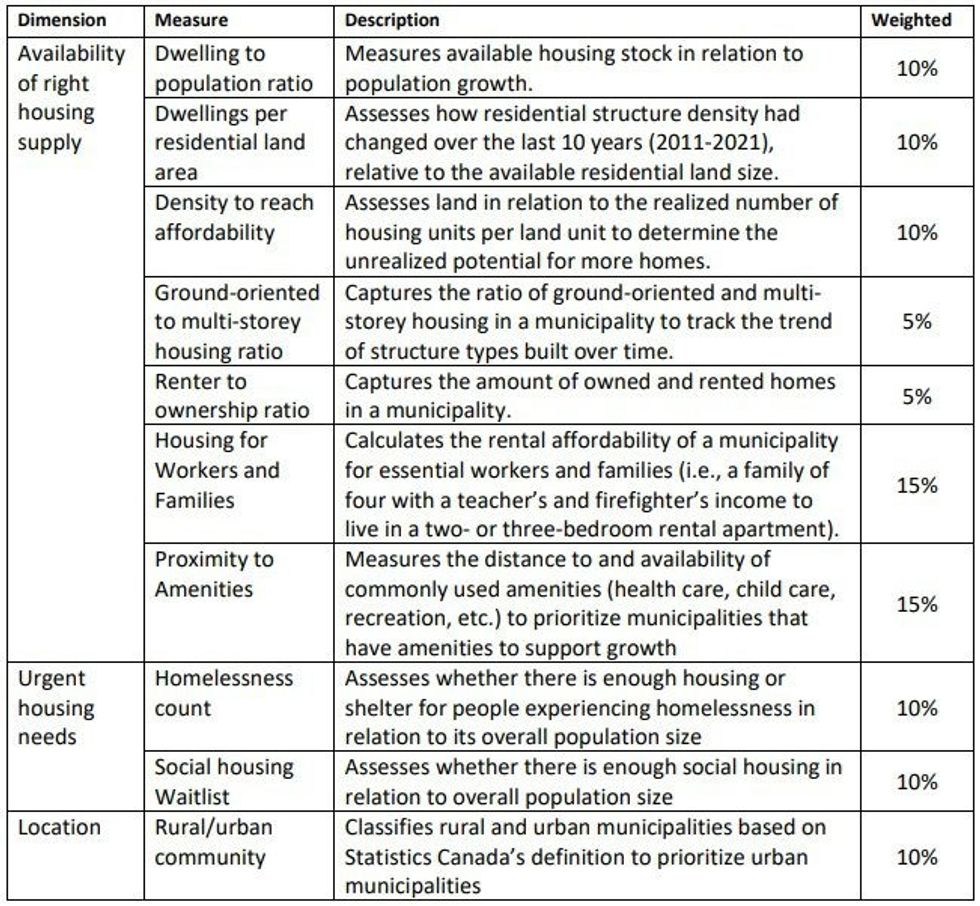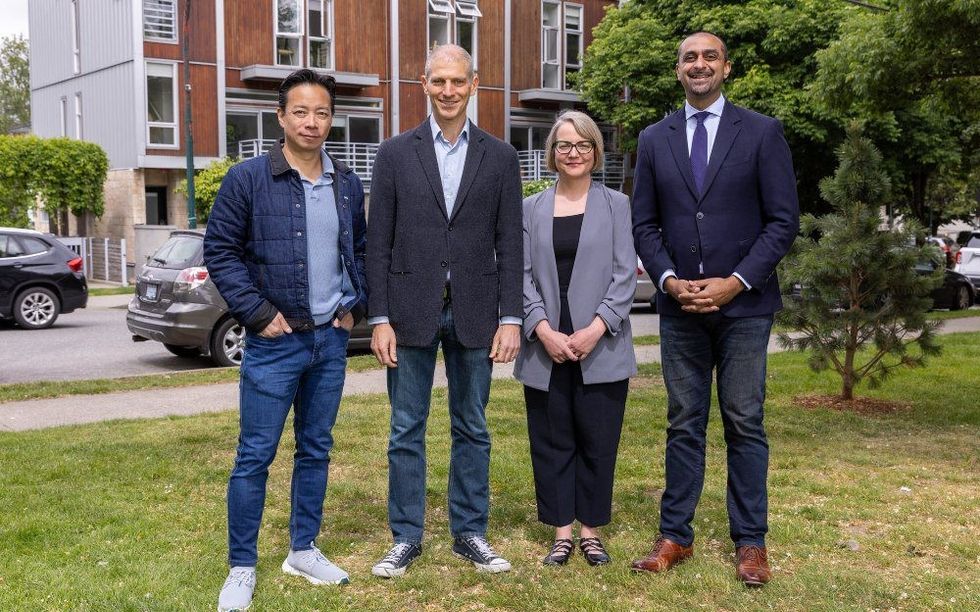The Monday after David Eby was sworn in as Premier, he announced the Housing Supply Act, which would give the provincial government the authority to set housing targets for local municipalities and potentially enforce "compliance options" in cases where municipal governments were falling short.
On Wednesday, Minister of Housing Ravi Kahlon announced the first 10 municipalities that will be given housing targets, with a second group of eight to 10 municipalities to be selected later this year.
The first group of 10 municipalities are:
- City of Abbotsford
- City of Delta
- City of Kamloops
- District North Vancouver
- District of Oak Bay
- City of Port Moody
- District of Saanich
- City of Vancouver
- City of Victoria
- District of West Vancouver
The actual housing targets have not yet been set, and the Province says that it will continue consulting with the selected municipalities over the summer to set the target numbers.
Once set, the provincial government will then monitor progress and work with municipalities to help address any potential barriers that are holding the municipal government from achieving those targets, such as improving local approval processes.
It's unclear if this list of 10 is a "naughty list" of municipalities that need improvement in the eyes of the Province, but we do know the criteria the Province used to make the selections.
According to the Province, the municipalities were chosen through a data-based process developed based on the work of economists and other experts, and involved giving municipalities a score weighted by 10 factors, categorized by three overarching dimensions: the availability of the right housing supply, the urgency of housing needs, and the location of the municipality itself.
Regarding the availability of the right housing supply, factors that were weighed include the dwelling-to-population ratio, the amount of dwellings per residential land area, the amount of density needed to reach affordability, the ground-oriented-to-multi-storey housing ratio, the renter-to-ownership ratio, the amount of housing for families and essential workers, and the proximity to amenities (such as healthcare facilities and childcare facilities), with the latter two receiving the highest weight (15%) of all 10 factors.
In terms of the urgency of housing needs, two factors were weighed: the homelessness count and the size of the waitlist for social housing. The location factor was then based on whether the municipality is a rural or urban community, as defined by Statistics Canada.

The Province says that the municipalities were chosen starting with "those with the greatest need and highest projected growth."
According to the current draft of the Housing Supply Act, if the Province deems that a municipality has not met the target it's been given or not made satisfactory progress towards the target, the Province can appoint an advisor to review the municipal government, including its processes and policies.
The Province can also issue a directive ordering the municipality to enact or amend a bylaw and issue or refuse a permit, essentially overriding the municipal government. Once such example of this already occurred recently, regarding the so-called Arbutus Project in Kitsilano.
The biggest name on the list is, of course, the City of Vancouver, the largest municipality in British Columbia by population. Abbotsford, Delta, and Kamloops are also among the bigger cities, while Victoria and Saanich are two of the larger municipalities on Vancouver Island.
Mayors of many selected municipalities voiced their support on Wednesday, saying they are looking forward to working with the provincial government.

Present for the announcement on Wednesday were BC Non-Profit Housing Association Jill Atkey, Director of the UBC Centre for Urban Economics and Real Estate Thomas Davidoff, and Mayor of Vancouver Ken Sim.
READ: Coalition of 10 Organizations Call On BC Gov to Create Housing Roundtable
"The Housing Supply Act recognizes that municipalities may make land-use decisions based not just on maintaining local built character or amenity, but also in the broader provincial interest of allowing households to choose the location and type of housing that serves them best," said Davidoff. "In determining which municipalities would benefit from additional help in making land-use decisions, I was pleased to see that the Province was receptive to feedback from professionals in the field of housing and implemented a screening mechanism that was based on objective and, I believe, reasonable standards."
The Housing Supply Act is currently only at the first reading stage, so it's unclear when it will be passed, but the Province has previously said it was aiming for the legislation to come into effect by mid-2023.
- In BC, Is Democracy Getting In The Way Of Housing? ›
- BC Gov Announces Next 20 Cities To Receive Housing Targets ›
- How BC Cities Are Faring Against Housing Supply Targets (TRACKER) ›
- BC Gov Issues Housing Supply Targets For 10 More Municipalities ›
- Ten More BC Municipalities Receive Housing Supply Targets ›





















